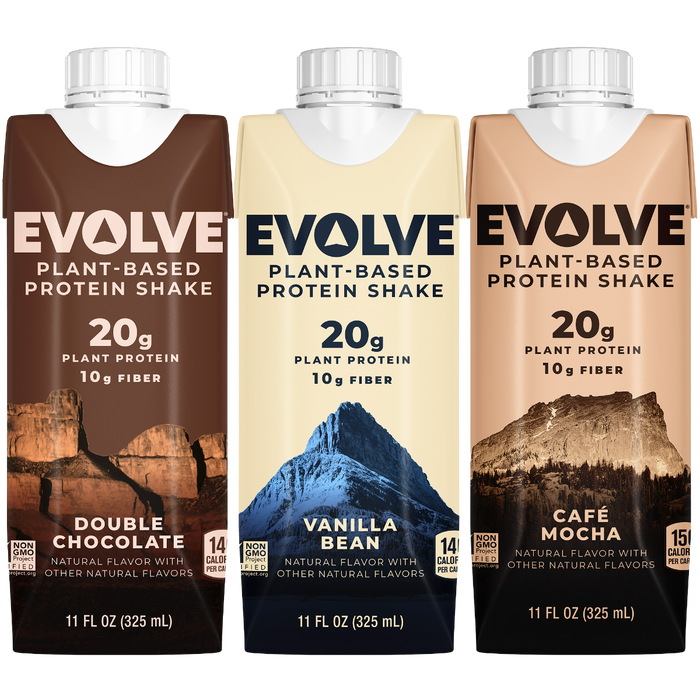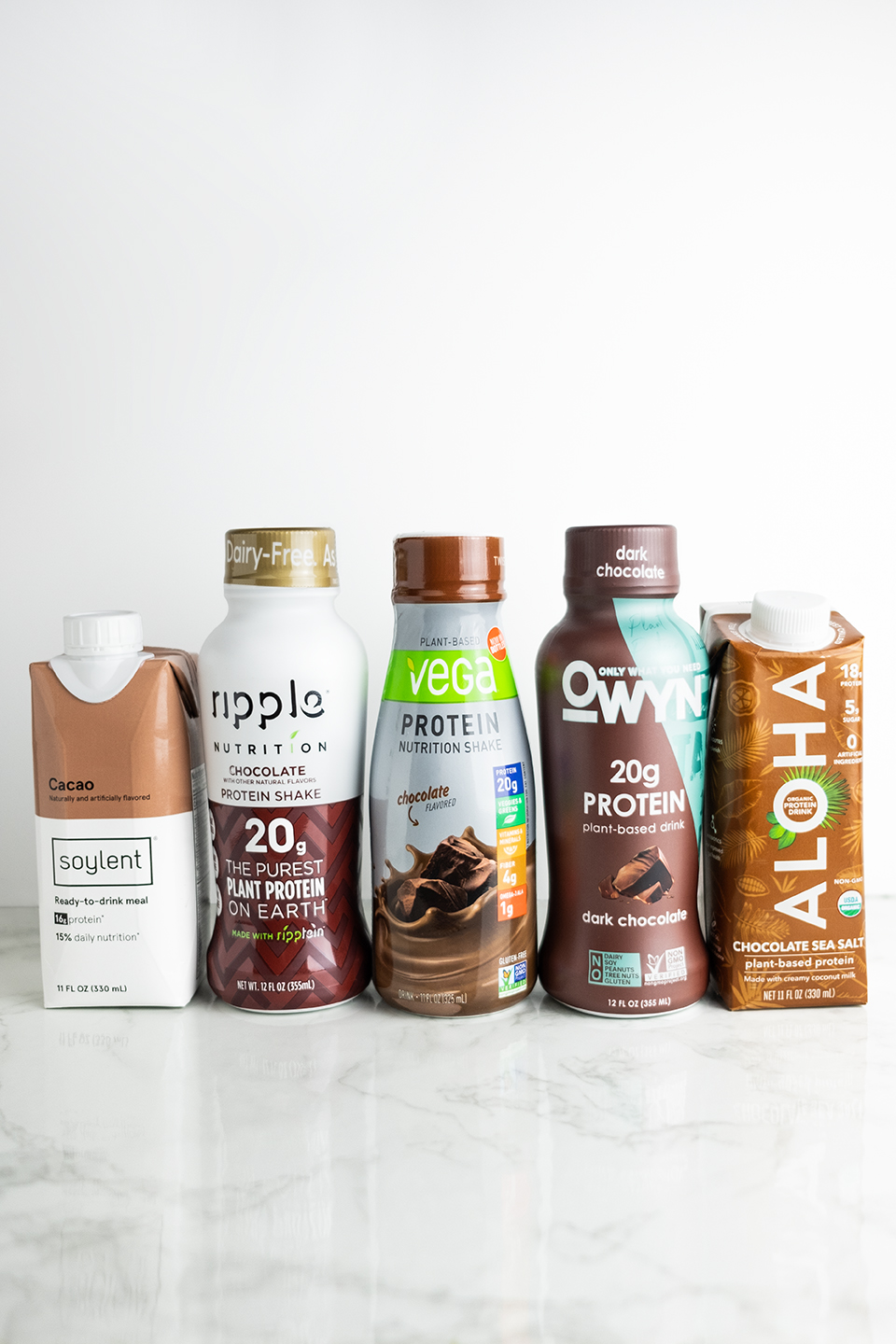Your trusted source for simple, practical nutrition advice and tips for a healthier lifestyle.
A plant-based protein shake provides essential nutrients and supports muscle growth. It’s a vegan-friendly alternative to traditional protein shakes.
Plant-based protein shakes have gained popularity due to their health benefits and sustainability. Derived from sources like peas, hemp, and brown rice, these shakes offer a complete amino acid profile. They are ideal for those seeking a nutritious, cruelty-free protein source.
These shakes can enhance muscle recovery, support weight management, and improve overall wellness. They are also lactose-free, making them suitable for individuals with dairy allergies or intolerances. Plant-based protein shakes are convenient, delicious, and easy to incorporate into daily routines. They are a perfect option for health-conscious individuals and athletes looking to optimize their protein intake.
Introduction To Plant-based Protein Shakes
Plant-based protein shakes are gaining popularity among health enthusiasts. These shakes are packed with nutrients from plants. They provide a sustainable source of protein. They are ideal for those who avoid animal products. Let’s explore the benefits of plant-based protein shakes.
Benefits Of Plant-based Shakes
Plant-based shakes offer many health benefits. Here are some key advantages:
- Rich in Nutrients: They contain vitamins, minerals, and antioxidants.
- Easy to Digest: Plant proteins are gentle on the digestive system.
- Low in Calories: These shakes help in weight management.
- Boosts Immunity: Nutrients in plants strengthen the immune system.
- Eco-Friendly: They have a smaller environmental footprint than animal proteins.
Why Choose Plant-based Over Animal Protein
There are several reasons to choose plant-based protein over animal protein:
- Healthier Fats: Plant proteins have less saturated fat.
- Allergy-Friendly: They are less likely to cause allergic reactions.
- Ethical Choices: Choosing plants supports animal welfare.
- Variety of Sources: You can get protein from many plants.
Consider the following table highlighting the differences:
| Plant-Based Protein | Animal Protein |
|---|---|
| Low in Saturated Fat | High in Saturated Fat |
| Rich in Fiber | No Fiber |
| Sustainable | High Environmental Impact |
| Ethical | Animal Welfare Concerns |
Plant-based protein shakes are a smart choice. They offer health, ethical, and environmental benefits. Switch to plant-based shakes for a healthier lifestyle.

Credit: www.amazon.com
Nutritional Profile
Exploring the nutritional profile of a plant-based protein shake is essential. These shakes offer a balanced mix of nutrients. They provide a great alternative to animal-based proteins.
Essential Nutrients
Plant-based protein shakes are rich in essential nutrients. They contain:
- Protein: Builds and repairs muscles.
- Fiber: Aids digestion and keeps you full.
- Vitamins: Boosts your immune system.
- Minerals: Supports bone health and energy production.
These shakes are often fortified with:
- Vitamin B12: Important for red blood cell formation.
- Iron: Necessary for oxygen transport in the body.
- Calcium: Essential for strong bones and teeth.
- Omega-3 fatty acids: Good for heart health.
Comparing Protein Sources
Comparing plant-based protein with animal-based protein shows key differences:
| Protein Source | Protein Content | Fat Content | Fiber Content |
|---|---|---|---|
| Plant-Based Protein | High | Low | High |
| Animal-Based Protein | High | High | None |
Plant-based proteins come from sources like:
- Peas: High in protein and fiber.
- Hemp: Contains omega-3 fatty acids.
- Brown Rice: Easily digestible and hypoallergenic.
- Chia Seeds: Packed with fiber and antioxidants.
These sources are naturally low in fat and free from cholesterol. They also provide a variety of nutrients that support overall health.
Popular Ingredients
Plant-based protein shakes have grown in popularity. They are packed with essential nutrients. This section explores some popular ingredients. These ingredients make these shakes nutritious and delicious.
Pea Protein
Pea protein is a top choice in plant-based protein shakes. It is derived from yellow peas. It is easy to digest and hypoallergenic. Pea protein provides a complete amino acid profile. This means it has all nine essential amino acids.
Pea protein is rich in:
- Iron
- Arginine
- Branched-chain amino acids (BCAAs)
It helps in muscle growth and recovery. It is also great for heart health and weight management.
Hemp Protein
Hemp protein is another popular ingredient. It is made from hemp seeds. Hemp protein is a complete protein source. It contains omega-3 and omega-6 fatty acids. These are good for heart health and brain function.
Key benefits of hemp protein include:
- High in fiber
- Rich in essential fatty acids
- Contains antioxidants
Hemp protein supports digestion and boosts the immune system.
Rice Protein
Rice protein is derived from brown rice. It is hypoallergenic and easy to digest. Rice protein is not a complete protein on its own. It is often combined with pea protein for a balanced profile.
Rice protein is:
- Low in fat
- Rich in B vitamins
- Contains essential amino acids
It is great for muscle recovery and overall energy boost.

Credit: www.medco-athletics.com
Health Benefits
Plant-based protein shakes offer numerous health benefits. They are great for everyone. They are packed with essential nutrients. These shakes support various aspects of your health. Below are some key benefits.
Weight Management
Plant-based protein shakes can help with weight management. They are low in calories and fat. They help you feel full longer. This can reduce overall calorie intake. Studies show that high-protein diets can aid weight loss. Plant-based shakes are a great choice for this.
- Low in calories
- Helps control hunger
- Supports weight loss
Muscle Recovery
These shakes are excellent for muscle recovery. They provide essential amino acids. These acids repair and build muscle tissue. After a workout, your muscles need protein. Plant-based shakes are a quick and effective source. They are also easy to digest.
| Benefit | Details |
|---|---|
| Essential amino acids | Helps repair muscle tissue |
| Quick and effective | Ideal post-workout |
| Easy to digest | Gentle on the stomach |
Digestive Health
Plant-based protein shakes support digestive health. They often contain fiber. Fiber aids in digestion and promotes gut health. Many plant-based proteins are hypoallergenic. This means they are less likely to cause allergies. They are also free from lactose, which many people cannot digest.
- Contains fiber
- Promotes gut health
- Hypoallergenic
- Lactose-free
How To Make Your Own Shake
Plant-based protein shakes are a delicious and nutritious way to fuel your body. They are easy to make at home with simple ingredients. Follow this guide to create your own shake and customize it to your taste and nutritional needs.
Basic Recipe
Start with a basic recipe for your plant-based protein shake. You need a few key ingredients.
- 1 cup of your favorite plant-based milk (almond, soy, oat)
- 1 scoop of plant-based protein powder
- 1 banana or 1 cup of frozen fruit
- 1 tablespoon of nut butter (almond, peanut)
- 1 teaspoon of chia seeds or flax seeds
Blend these ingredients until smooth. Adjust the thickness by adding more milk or water.
Flavor Variations
Experiment with different flavors to keep your shakes exciting. Here are some ideas:
- Chocolate Delight: Add 1 tablespoon of cocoa powder and a handful of spinach.
- Berry Blast: Use mixed berries instead of banana and add a splash of vanilla extract.
- Tropical Twist: Blend in 1/2 cup of pineapple and 1/2 cup of mango.
- Green Machine: Add 1 cup of spinach or kale and 1/2 avocado.
Boosting Nutrient Content
Enhance your shake with extra nutrients. Here are some options:
| Ingredient | Benefit |
|---|---|
| Spirulina | Rich in protein and antioxidants |
| Hemp Seeds | High in omega-3 fatty acids |
| Oats | Good source of fiber |
| Matcha Powder | Boosts energy and metabolism |
Add any of these ingredients to your shake to make it even healthier.
Best Times To Consume
Understanding the best times to consume a plant-based protein shake can maximize its benefits. Whether you’re fueling up for a workout, recovering afterward, or replacing a meal, timing is key. Let’s break down the optimal times to enjoy your shake.
Pre-workout
Consuming a plant-based protein shake before your workout can provide essential amino acids. These help with muscle repair and growth during exercise.
Consider drinking your shake 30-60 minutes before starting. This allows your body to digest and use the nutrients effectively.
| Benefits | Details |
|---|---|
| Energy Boost | Provides sustained energy for your workout |
| Muscle Protection | Helps prevent muscle breakdown during exercise |
Post-workout
After a workout, your muscles need to recover. A plant-based protein shake can help speed up this process.
Drink your shake within 30 minutes post-exercise. This helps replenish nutrients and repair muscle fibers.
- Replenishes Glycogen Stores
- Reduces Muscle Soreness
- Supports Muscle Growth
Meal Replacement
A plant-based protein shake can also serve as a nutritious meal replacement. It’s convenient for those on the go.
Ensure your shake includes a balanced mix of protein, carbohydrates, and fats. This keeps you full and energized.
- Blend with fruits and vegetables
- Add healthy fats like nuts or seeds
- Incorporate whole grains for fiber
Choosing the right time to consume your plant-based protein shake can enhance your fitness and health goals. Tailor your intake to your schedule for the best results.
Addressing Common Concerns
Many people have questions about plant-based protein shakes. Some worry about protein deficiency, while others have concerns about allergens. This section will address these common concerns.
Protein Deficiency Myths
Many believe plant-based protein shakes lack enough protein. This is a myth. Many plants are rich in protein. Peas, rice, and hemp are good sources.
Here is a table to show protein content in common plant sources:
| Plant Source | Protein per 100g |
|---|---|
| Peas | 8g |
| Brown Rice | 2.6g |
| Hemp Seeds | 31.6g |
These sources can meet your daily protein needs. A balanced diet is key.
Allergen Considerations
Some people worry about allergens in plant-based protein shakes. Common allergens include soy and nuts.
To avoid allergens, read labels carefully. Choose shakes made with pea protein or brown rice protein if you have soy allergies.
- Check labels for common allergens.
- Opt for hypoallergenic options like pea or rice protein.
These steps can help you enjoy plant-based protein shakes safely.
Choosing The Right Product
Finding the perfect plant-based protein shake can be tricky. It’s important to select a product that aligns with your health goals. Here’s how to make the best choice.
Reading Labels
Always check the labels on protein shake products. Look for the protein content. Aim for at least 20 grams of protein per serving. Ensure the shake has minimal added sugars. Seek out products with natural ingredients.
Examine the ingredient list carefully. Avoid products with unpronounceable chemicals. Choose shakes that use whole foods as their primary source of protein.
Avoiding Fillers
Many protein shakes contain unnecessary fillers. Fillers can be artificial flavors, colors, or preservatives. These ingredients can be harmful to your health. Stick to shakes that are free from these additives.
Look for shakes with simple ingredient lists. The fewer the ingredients, the better. A good rule of thumb: if you can’t identify an ingredient, it’s best to avoid it.
Top Brands
Here are some top brands that offer high-quality plant-based protein shakes:
- Vega – Known for their clean and natural ingredients.
- Orgain – Offers organic and soy-free options.
- Garden of Life – Features a variety of protein sources.
These brands are trusted by many health enthusiasts. They focus on providing nutritious, clean, and effective protein shakes.
Sustainability And Ethical Considerations
Choosing a plant-based protein shake isn’t just about health. It also supports sustainable and ethical practices. This benefits the environment, animal welfare, and local farmers.
Environmental Impact
Plant-based protein shakes have a smaller carbon footprint. They use fewer resources like water and land.
Plant farming produces less greenhouse gases. This helps fight climate change.
| Resource | Plant-Based Protein | Animal-Based Protein |
|---|---|---|
| Water Usage | Low | High |
| Land Usage | Low | High |
| Greenhouse Gases | Low | High |
Animal Welfare
Plant-based protein shakes mean fewer animals are farmed. This reduces animal suffering and promotes better animal welfare.
Choosing plant-based options supports ethical treatment of animals. This aligns with a compassionate lifestyle.
Supporting Local Farmers
Buying plant-based protein shakes helps local farmers. They often grow the ingredients used in these shakes.
- Boosts local economies
- Promotes sustainable farming
- Supports community-based agriculture
Support for local farmers ensures a stable, local food supply. It also encourages sustainable farming methods.

Credit: www.jodiloves.com
Frequently Asked Questions
What Is A Plant-based Protein Shake?
A plant-based protein shake is a nutritious drink made from plant-derived protein sources like peas, hemp, or soy.
Are Plant-based Protein Shakes Healthy?
Yes, plant-based protein shakes are healthy. They provide essential nutrients, are easy to digest, and support muscle growth.
Can Plant-based Protein Shakes Help With Weight Loss?
Yes, they can help with weight loss. They are low in calories, high in protein, and promote satiety.
Do Plant-based Protein Shakes Contain All Essential Amino Acids?
Some do contain all essential amino acids. Check the label to ensure a complete protein profile.
Conclusion
Switching to plant-based protein shakes offers numerous benefits. They’re nutritious, eco-friendly, and support various dietary needs. Enjoy a tasty, health-boosting shake daily. Embrace the shift to plant-based protein and experience improved wellness and vitality. Your body and the planet will thank you.





